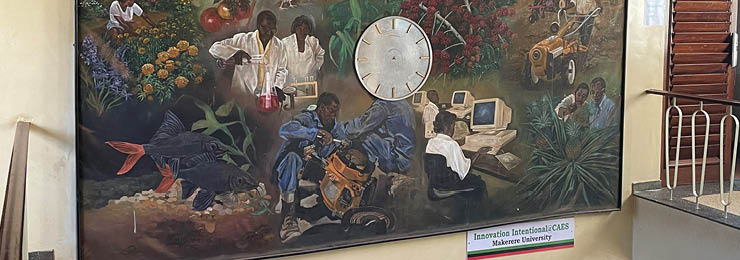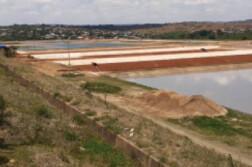Imagine year 2035. What skills and competencies are appreciated in the world of work? Is critical thinking and empathy on the top of the CV’s or is someone with a high skill in typewriting and excel skills chosen for the job. In our digitally developing world where the complexity in systems increases each day the employers are seeking for competent creators, analytical thinkers, problem solvers and those who can “think outside the box”. Typewriting and excel processing can maybe be outsourced to robots and AI, but we still need people in the decision making, driving the change, motivating, and inspiring people. All of these requiring the soft skills and social and communicational competences. But is our current teaching and aspects of learning in line with these admired competences.
This is something that AgrGROW project is drilling into and together in the partner universities we are drawing out the future profile for a competence-based graduate and to apply the profile to different degree program curricula in Malawian and Ugandan universities. On the 4th–8th December AgrGROW Curricula revision teams from Makerere University, Malawi University of Science and Technology, Lilongwe University of Agriculture and Natural Resources and Bugema University joined in Kampala for Competence based Curricula workshop. Häme University of Applied Sciences (HAMK) together with University of Copenhagen attended the workshop in a role of a trainer and facilitator. From HAMK perspective, the history of experiences in educational module projects with industrial stakeholders, the concept of learning through company collaboration in other HAMK in Africa projects and design-based education (DBE) were key points to be shared with the partners and guide the discussion.
From online training to workshop and curricula revision
Workshop was a milestone for each universities process on Curricula revision, preceded by online trainings on the same topic. Through online trainings constructive alignment, 21st century skills and competences, participatory and stakeholder connected pedagogical approaches and methods have been discussed and recognized as a means for competence-based curricula. In the workshop topics were recalled but at the same time the process of revision was by advanced by each university and supported in an atmosphere of co-creation and knowledge sharing.
Workshop was conducted with tools and methods guiding the process of the participants and offered a food for thought on the aspects of graduate profile and triggered us in finding the relevancy and importance of each university and degree programme. To continue the work in their own sectors and with each’s stakeholders – brainstorming method of Starbusting was tested, DACUM-method was also introduced not to forget the many different tools in relation to the Bloom’s taxonomy.
The key question for the workshop was, what kind of competences and skills are appreciated in the world of work and how can curricula and teaching support undergraduates in achieving those. This derived us also ponder the teaching methods, assessment, materials for teaching, inclusion and teaching towards entrepreneurship as a pedagogical aspect supporting the aimed goals and individual learning path for undergraduates.
Not to only revise the curriculum but also the role of the teacher
To achieve the goals workshop participants recognized that the role of a teachers requires an update in terms of pedagogical capacity building. Thus, teaching methods, tools and approaches are to be revised alongside to curricula and universities and academic community has too its role in supporting the teaching staff and transition. This observation is crucial in creating reformative and problem-based implementations for teaching and it was pleasing to see many ideas from good practise being shared among the workshop participant, ideas from staff trainings to job shadowing were raised from the partner universities.
The best way to forward is learning from each other’s and taking the shift to competence-based curricula and syllabus together. The road to competence-based curricula in not a smooth expressway, but the only way to achieve a wider normative change, revision and transition towards the competent graduate is to be done collectively and in co-creation, among the partners of the AgrGROW, but also beyond – among industrial partners, communities, organizations, and the stakeholders and universities.
Author
Tiiti Kämäri, Senior Lecturer, School of Biotechnology and Natural Resources




